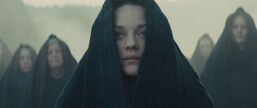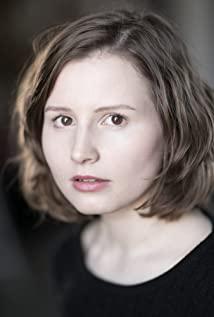As a classic of Shakespeare, "Macbeth" has been put on the screen many times. Only in terms of movies, the famous ones are the version adapted by Orson Welles, Polanski's, Kurosawa Akira; and this new 2015 work. "People can't help but ask", why do you still want to shoot? Has something new been photographed? This is what I expected before watching the movie.
2. Movie language
mainly talks about two points: interspersed lens and scenery (screen) selection. Interpolation is the narrative feature of the film. Unlike literary interludes, the interludes in movies are more instantaneous, that is to say, each frame can be inserted and interlaced to create a montage effect without hindering the continuity of the narrative. sex. The biggest effect of such interspersed shots on the subject is that they work together to express Macbeth's ambivalence. Whether it is before the death of the king or in the painful flashbacks in the future, the shots often piece together Macbeth's broken mental state for the audience. Although the movie cannot directly describe what the protagonist thinks, when people's thoughts are presented in pictures, the interspersed shots of the movie become the most appropriate way of expression. The choice of scenery (screen) is the "national geographic" presentation of the title. A lofty landscape in the Scottish Highlands, supplemented by the mist from the melting of dry ice, restores the mysterious atmosphere of mist and witchcraft in the original work. There are so many monologues in this film, almost similar to the stage play, but why is the curtain of the stage play so impressive that the photography of National Geographic?
3. Receptive communication.
Perceptual communication is the atmosphere created and conveyed by the film. In addition to the scenery created by the above-mentioned scenery, it is also caused by accurate, appropriate and thrilling music. The two work together to draw the audience into the background of the film's narration. In addition, the violent atmosphere of the film is also conveyed to the audience in a controlled manner. The slow motion in the opening of the movie gives the heroes in the war a sacred and noble attitude, and the blood red color at the end reflects the special perception of fighting in the fire. In addition to these aesthetic violence, there is a lot of direct violence and blood in the film. This can actually be compared with Polanski's adapted version: Then the former can only be out of reach, after all, Polanski was murdered when his pregnant wife was murdered. "Macbeth" was filmed in his mood, and his violent scenes all contained factors in his mind. It was really terrifying to watch.
4. Content delivery.
Shakespeare’s enduring, the important reason is the cross-contextual analysis of human nature-whether you read or understand English, whether you know the specific historical background or not, when he talks about people, you will find this The human factor also exists in you. Macbeth's entanglement is the "evil nature" that humans yearn for power and do all evil, and it is the desire and pursuit of Machiavellianism. These people-related content are properly presented in this film, and they are completely in sync, that is, in line with the original works of Shakespeare. Here is another comparison: if you watch Akira Kurosawa's film adaptation of "Macbeth", "Spider's Nest", that film is nothing but a silly. Kurosawa Akira's version is more typical and extreme in character personalities, transforming into the Japanese context, with the spirit of Bushido and the gods and monsters elements of Noh, making Macbeth and Mrs. Macbeth stand out in the unique image of Japan, and go a step further. Reflect the entanglement of human nature in the pursuit of power. In comparison, the two works can be said to be adaptations of "faithfulness", but basically they can be said to be superior.
All in all, the film has no shortcomings, the pictures are exquisite, the music atmosphere is decent, and the actors perform appropriately (I love Marion Cotillard). But there is also a lack of bright spots, and it is difficult to surpass the predecessors (except for the technical level). So, why shoot? I can't help but doubt the potential factors of a kind of cultural promotion, or the redefinition of the cultural field. To put it bluntly, the official behind the film studio believes that it is necessary to mention Shakespeare again today to let people understand this cultural symbol again to determine its cultural status among the public. Recognizing this mechanism will not hinder the splendor of the film, nor will it hinder the original greatness of Shakespeare. But you must know that greatness needs to be opened, and books that have never been opened can never become literature. To conclude with Shakespeare’s famous sentence about life in Macbeth:
Life's but a walking shadow, a poor player/ That struts and frets his hour upon the stage/ And then is heard no more. It is a tale/ Told by an idiot, full of sound and fury/ Signifying nothing.
View more about Macbeth reviews











